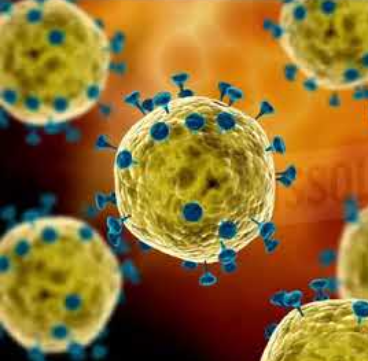An international team led by University of British Columbia researcher Dr. Josef Penninger today announced that initial, encouraging data is emerging from the clinical drug candidate APN01 to treat severe COVID-19.
A case report published in The Lancet Respiratory Medicine describes the first compassionate use of APN01 (recombinant human soluble ACE2) to treat a 45-year-old woman who progressed to severe COVID-19 over a nine-day period. The published data document multiple indicators of significant improvement of her clinical condition after treatment, including a decrease in SARS-CoV-2 viral load, a reduction in inflammatory mediators, and the development of high levels of neutralizing antibodies against SARS-CoV-2.
Global Television report from the 6 p.m. news September 24, 2020
The findings are the first data on the effect of blocking the Spike protein in a patient with a therapeutic form of ACE2, supporting the proposed mode of action of APN01, and its ability to specifically target SARS-CoV-2. These results continue to support the promise of this novel drug as a treatment to overcome life-threatening illness as well as to stop early infection with the novel coronavirus that, as of September 24, has affected more than 32 million people and claimed the lives of close to 1 million worldwide.
“ACE2 is at the center of COVID-19 research and drug development. In this instance, we have now provided first data on soluble ACE2 therapy in a patient with SARS-CoV-2 infection,” comments Dr. Alexander Zoufaly, MD, senior physician in the Department of Infectious Diseases/Clinic in Favoriten, Kaiser Franz Josef Hospital, and first author of the publication. “The results from this named patient use* are encouraging, and support the rationale to further explore APN01 as a therapy to treat COVID-19 in Phase II clinical trials.”
ACE2 — a protein on the surface of the cell membrane — was identified by Penninger and colleagues University of Toronto and the Institute of Molecular Biology in Vienna (IMBA) who reported its critical role in protecting organs such as the heart, kidneys, blood vessels, and guarding against lung failure due to infection or aspiration. In earlier work in animal models, the group found that ACE2 is the essential receptor for SARS-CoV-1, that causes a viral respiratory illness recognized as a global threat in 2003. ACE2 also rapidly emerged as the key receptor for the Spike glycoprotein of SARS-CoV-2 in early 2020, placing it at the centre of the response to the COVID-19 pandemic.
“Providing first data on the effect of blocking the viral Spike glycoprotein in patients with COVID-19 is of paramount importance. These data confirm the mode of action of APN01 specifically targeting the SARS-CoV-2 virus,” says Dr. Josef Penninger, MD, co-inventor of APN01, founder of the developer and manufacturer of the drug, APEIRON Biologics AG, and senior author of the publication. “Our findings from the first SARS epidemic and recent research have identified ACE2 as the critical entry door for both corona viruses, SARS-CoV-1 and SARS-CoV-2, to infect human cells. The new data further support the ability of APN01 to lock the door against the virus.
“Importantly,” adds Dr. Penninger, “in contrast to basically all other drug candidates, APN01 has a dual action – it blocks the virus and can protect the lung, blood vessels and the heart from injury via its enzyme function. These are the tissues that are also affected in severe COVID-19 patients – sometimes with long-term effects – and often the cause of death. The compassionate use findings provide essential data that this important enzyme function of APN01 is preserved in treated COVID-19 patients, and also provide the first data showing that this dual function in one drug might be one of the most rational and promising therapeutic approaches we have. This is now being tested in carefully-designed clinical trials.”
Peter Llewellyn-Davies, CEO of APEIRON Biologics AG, the company that developed and manufactures APN01, adds: “We are delighted our drug candidate APN01 may have helped this patient to overcome the life-threatening disease and are confident to confirm these positive results in our ongoing and progressing pivotal clinical Phase II trial. The further scientific validation by this renowned journal encourages us in our efforts to providing an efficacious therapy against COVID-19 for the benefit of patients and society.”
*Named patient use is a way of obtaining medicine before authorization where a doctor requests supply of an unauthorized medicine directly from the manufacturer to treat an individual patient under the doctor’s direct responsibility.
Key findings of the publication: APN01 (recombinant human soluble ACE2) infusion showed that the drug candidate retained its enzymatic activity and strongly modulated the renin angiotensin system. The APN01 infusion correlated with a gradual reduction in levels of multiple disease relevant inflammatory mediators over the studied time period. The infusion of APN01 also correlated with a rapid loss of detectable viremia and slightly delayed reduction in viral titers in tracheal samples and nasopharyngeal swaps. APN01 infusion was fully compatible with an adaptive immune response and the development of high titers of neutralizing antibodies against SARS-CoV-2.
About APN01 / alunacedase alfa (soluble ACE2)
APN01 / alunacedase alfa (rhsACE2) is a well-advanced drug candidate for the treatment of COVID-19 and one of the few therapeutic approaches specifically directed against the corona virus. According to experts, if the current Phase II study is positive, accelerated market approval is possible.
The company-sponsored Phase II trial is ongoing in Austria, Germany, Denmark, UK, and Russia and is expected to be expanded to the US. The double-blind, randomized, placebo-controlled study aims to treat 200 patients with severe COVID-19 disease.
The specific targeting of SARS-CoV-2 by APN01 was recently confirmed by preclinical results published in the peer-reviewed publication CELL
For further information, please contact:
UBC Life Sciences Institute
Bethany Becker, Communications and Outreach Specialist
Email: bethany.becker@ubc.ca
Cell: 1-604-838-4585
www.lsi.ubc.ca
Institute for Molecular Biotechnology (IMBA)
Ines Mehu-Blantar, Senior Communications Manager
Email: ines.mehu-blantar@imba.oeaw.ac.at
Tel: 43-1-79044-3628
https://www.imba.oeaw.ac.at/
APEIRON Biologics AG
Peter Llewellyn-Davies, CEO
Email: investors@apeiron-biologics.com
www.apeiron-biologics.com
Media and Investor Relations
MC Services AG
Julia Hofmann
T +49 89 210 228 0
Email: apeiron@mc-services.eu
